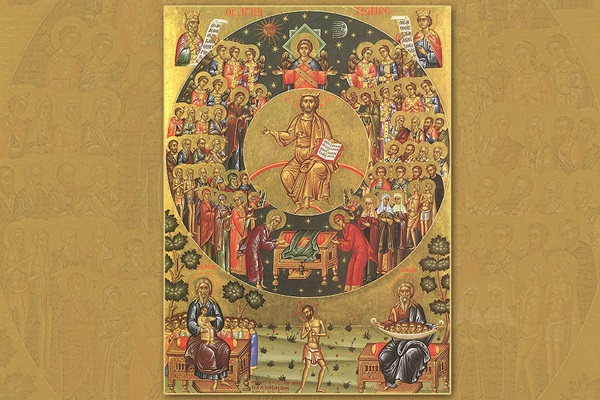Every time Christians say the Apostles’ Creed, we profess belief in the communion of saints. One common explanation of the the term “communion of saints” is that it refers to the whole community of faithful followers of Christ, living and dead, past, present and future.
Rev. Katie Shockley explains, "When we gather in worship, we praise God with believers we cannot see. When we celebrate Holy Communion, we feast with past, present and future disciples of Christ. We experience the communion of saints, the community of believers –– living and dead. This faith community stretches beyond space and time. We commune with Christians around the world, believers who came before us, and believers who will come after us. We believe that the church is the communion of saints, and as a believer, you belong to the communion of saints.”
Orthodox Christians regularly use icons depicting the saints as physical reminders that all saints are truly present.
Another explanation is that the term "communion of saints" refers to the local church, the people with whom you are most connected in face to face Christian community. This explanation is grounded in the use of the term "koinonia" (variously translated as "communion" or "community" or "fellowship") in early Christianity. Whenever it appears in the New Testament, it is almost always talking about local bodies of Christ. The structure of the third section of the Apostles Creed moves from "more comprehensive" to "more specific." And so the term "holy catholic church" refers to all Christians everywhere, while "communion of saints" (which follows it) refers to the local gathering of Christians. See this video from Liturgy Man for more.
All Saints Day, which for United Methodists also involves the observance of All Souls Day, is a time when we remember notable Christians of every time and place as well as those we have known locally who have died within the past year. It is an occasion to honor those who lived faithfully, shared their faith, and have pointed us to the way of Christ through the witness of their lives. Shockley goes on, “The saints in our lives inspire us to live in holiness and righteousness.”
Learn more: Ways to remember the lives and work of church saints
This content was produced by Ask The UMC, a ministry of United Methodist Communications.





